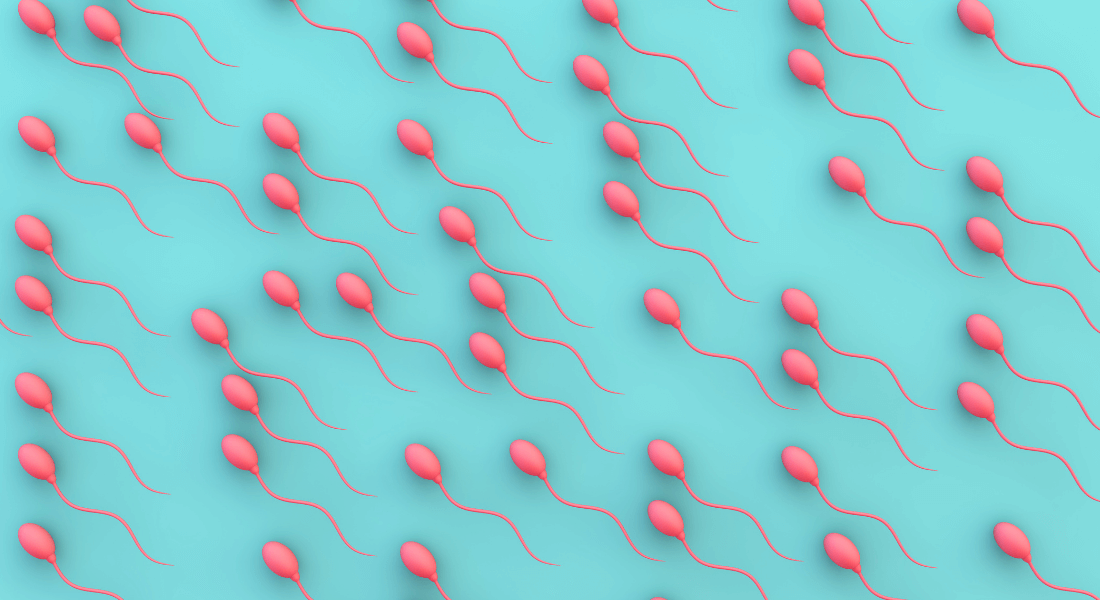Men with obesity can double their sperm count
Men with obesity can double their sperm count if they lose weight and maintain the weight loss. This is the conclusion in a new study by researchers from the University of Copenhagen and Hvidovre Hospital.

Men all over the world are suffering from deteriorating semen quality – often referred to as an outright fertility crisis.
Now, however, there may be good news for some of the men who are experiencing problems.
In a new clinical study, researchers from the University of Copenhagen and Hvidovre Hospital show that men with obesity improve their semen quality if they lose weight – and maintain the weight loss.
“It was surprising to us that such a big improvement can be shown in the semen quality in connection with a weight loss. And as 18 percent of Danes have obesity, this new knowledge may actually make a difference,” says Professor Signe Torekov who headed the study together with Professor Romain Barres at the Novo Nordisk Foundation Center for Basic Metabolic Research.
The new findings may be good news for the fertility, as a link between higher sperm count and faster achievement of pregnancy has previously been shown.
The study has been published in the recognised journal Human Reproduction which enjoys one of the highest rankings in the field of fertility. A total of 56 men with obesity participated, aged 18-65 years and with a body mass index between 32 and 43.
Sustained weight loss necessary
Signe Torekov explains that it has long been known that obesity is associated with reduced semen quality. Previous studies have also suggested a link between weight loss and increased semen quality, but these studies have had so few participants or such modest weight loss that it has been difficult to draw conclusions from them, she explains.
“But now we are ready to do just that. This is the first long-term randomised study, where we have shown that semen quality in men with obesity improve with a sustained weight loss,” says Signe Torekov at the Department of Biomedical Sciences.
“The men lost an average of 16.5 kg which increased the sperm concentration by 50 percent and the sperm count by 40 percent eight weeks since the weight loss. During the 52 weeks, the trial lasted following the weight loss, the men maintained the improved semen quality. But only the men who maintained the weight loss: after a year, these men had twice as many sperm cells as before their weight loss. The men who regained weight, lost the improvements in semen quality,” she explains.
Part of a larger study
The study is a sub study of a major publication on weight loss, which was published in the New England Journal of Medicine in May 2021. A total of 215 Danes with obesity participated in the larger study. It was among these participants that 56 of the men also provided semen samples to investigate whether semen quality and weight loss could be related.
In the trial, all participants first followed an eight-week regimen with a low-calorie diet, resulting in a weight loss. Then the participants were randomly divided into four groups.
Two of the groups received placebo medication, while the other two groups received obesity medication. Among the two placebo groups, one group had to follow an exercise programme where each week, they had to do a minimum of 150 minutes of moderate physical training or 75 minutes of hard training – or a combination.
The other group did not change their usual level of physical activity. The two groups that received obesity medication were divided in the same way, into a group with and a group without an exercise programme.
After a year, it was shown that the group that only exercised and did not receive medication, as well as the group that only received obesity medication and did not exercise, maintained the weight loss of 13 kg. The group that both received obesity medication and exercised lost additional weight and improved health. The placebo group – those who thought they were given medication, but did not exercise – had regained half of the weight loss with aggravation of many of the risk factors related to development of type 2 diabetes and cardiovascular disease.
Read the entire study ‘Sperm count is increased by diet-induced weight loss and maintained by exercise or GLP-1 analogue treatment: a randomised controlled trial’ here.
Contact:
Professor Signe Torekov
torekov@sund.ku.dk
+45 22 98 38 27
Press Officer Søren Thiesen
s.thiesen@sund.ku.dk
+45 28 75 29 34
